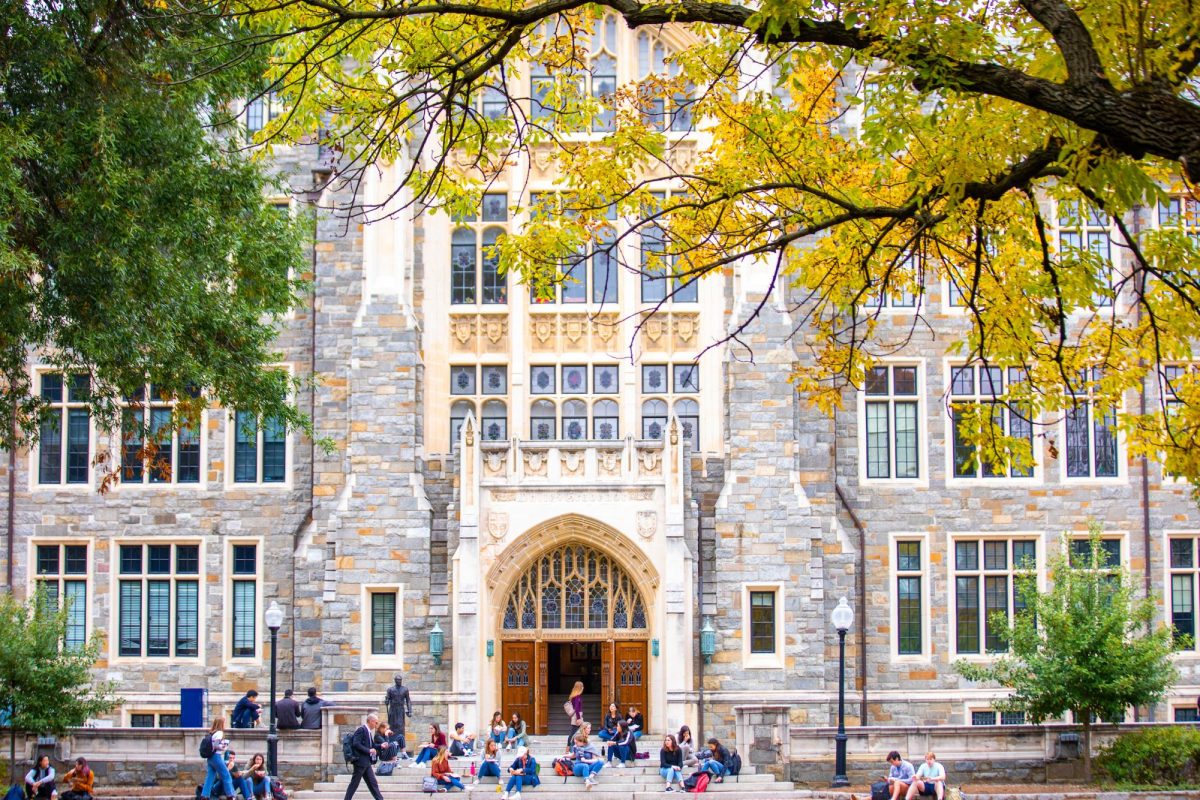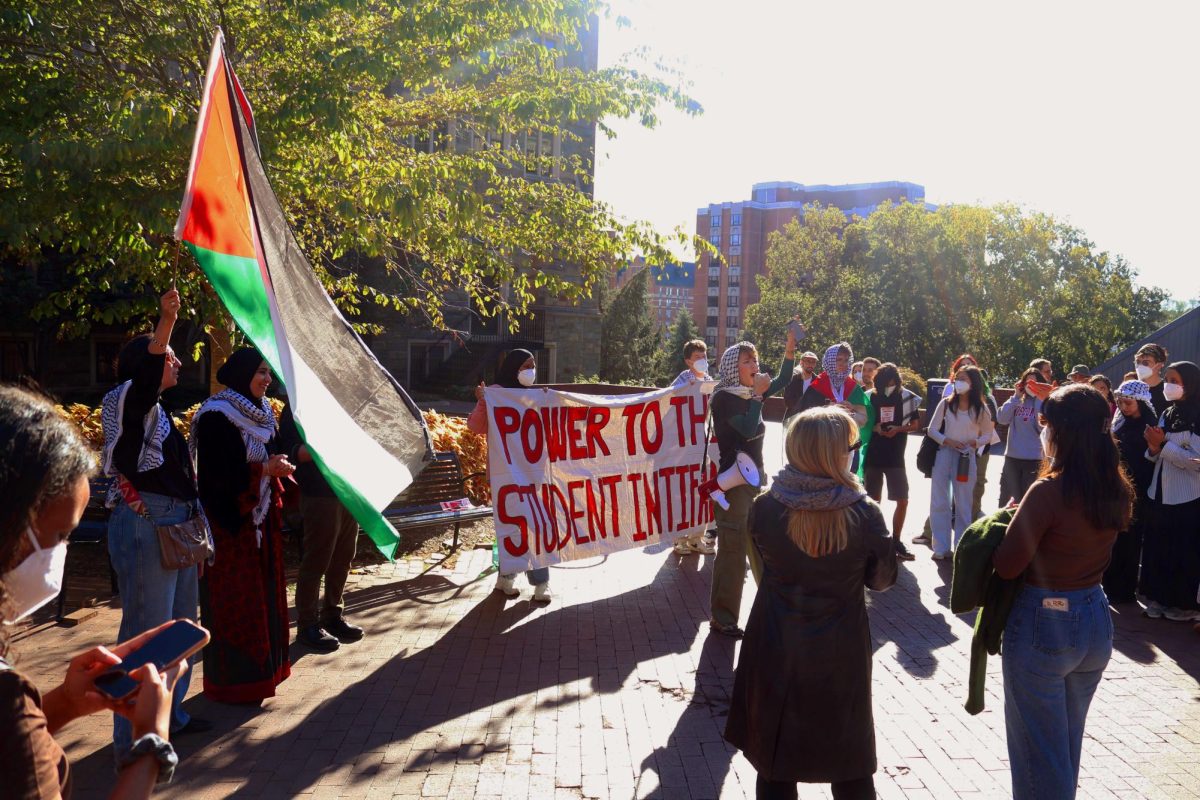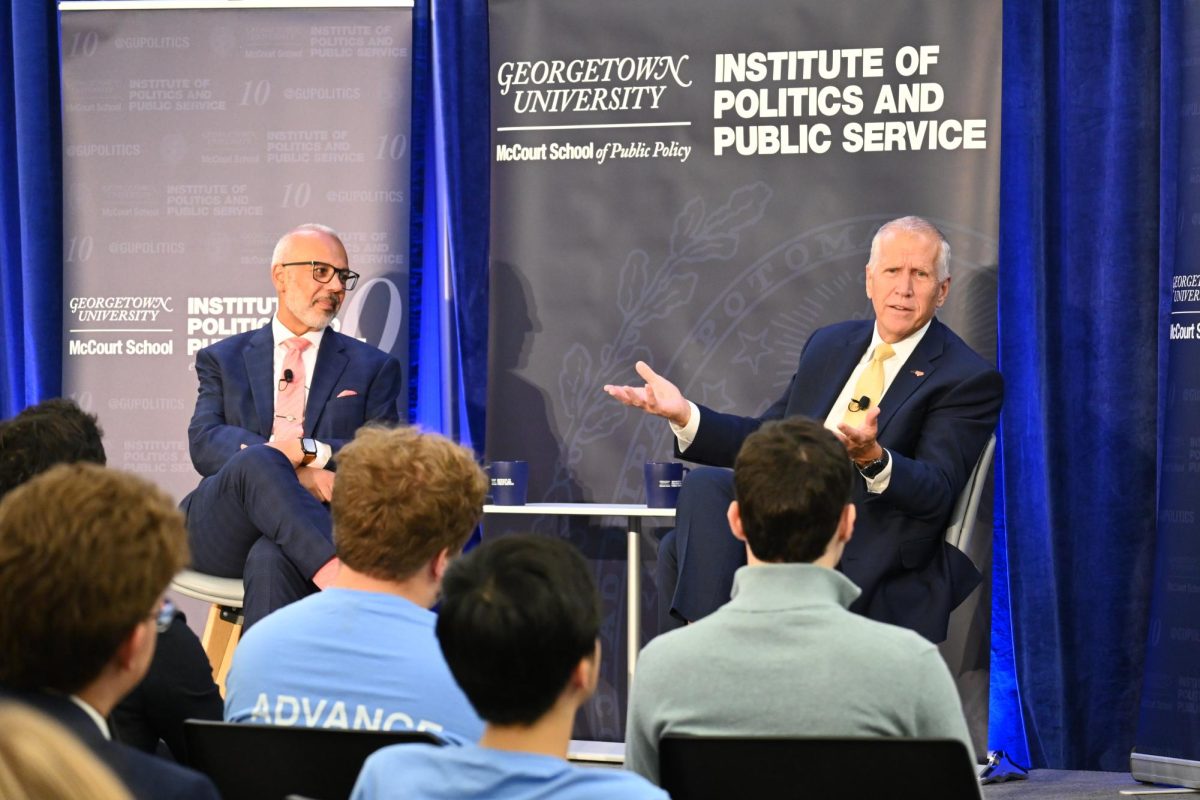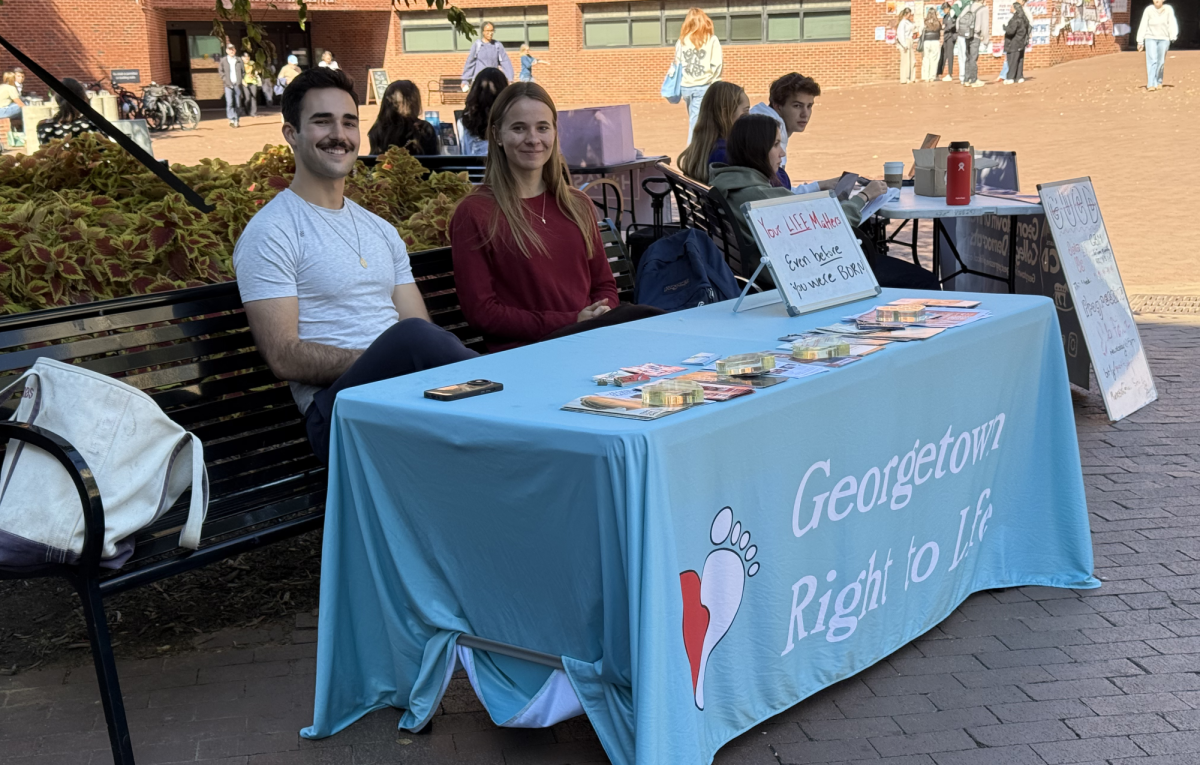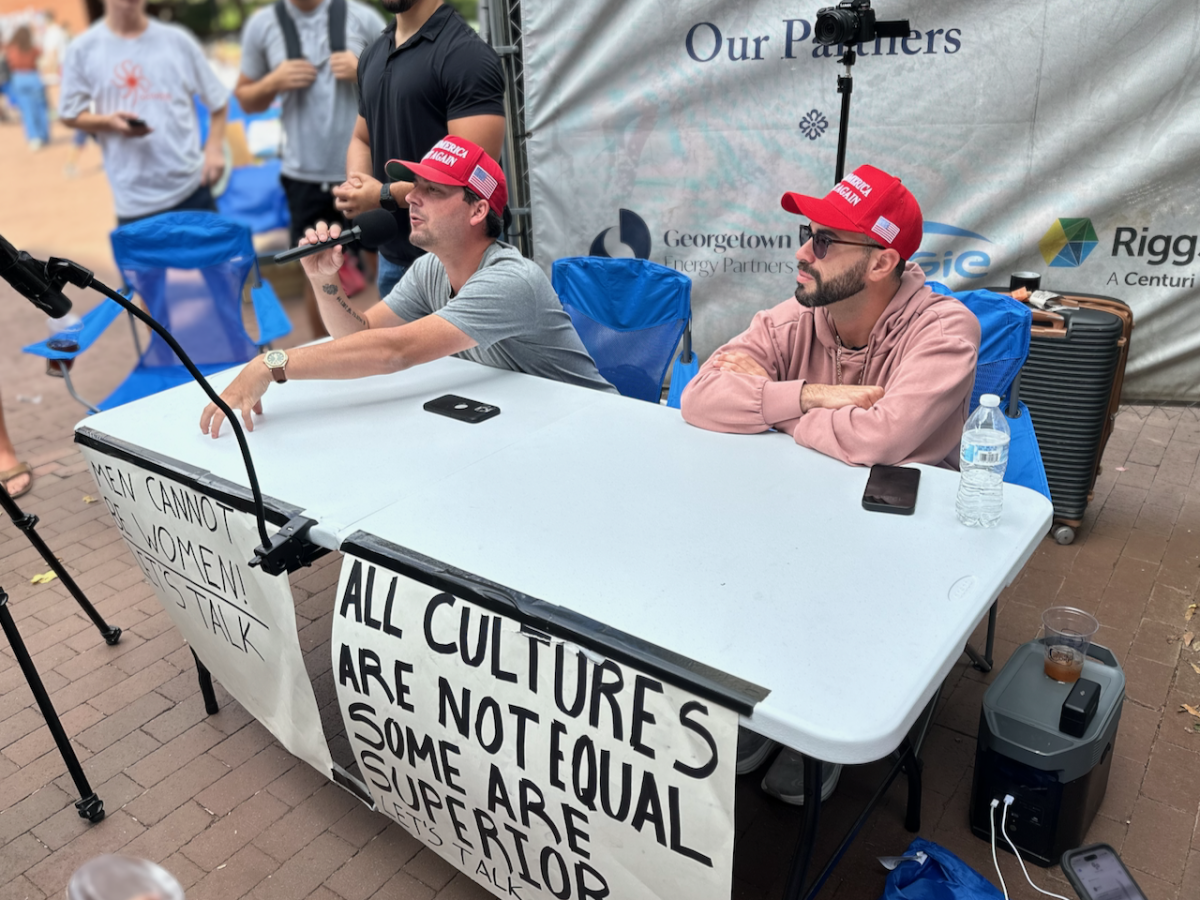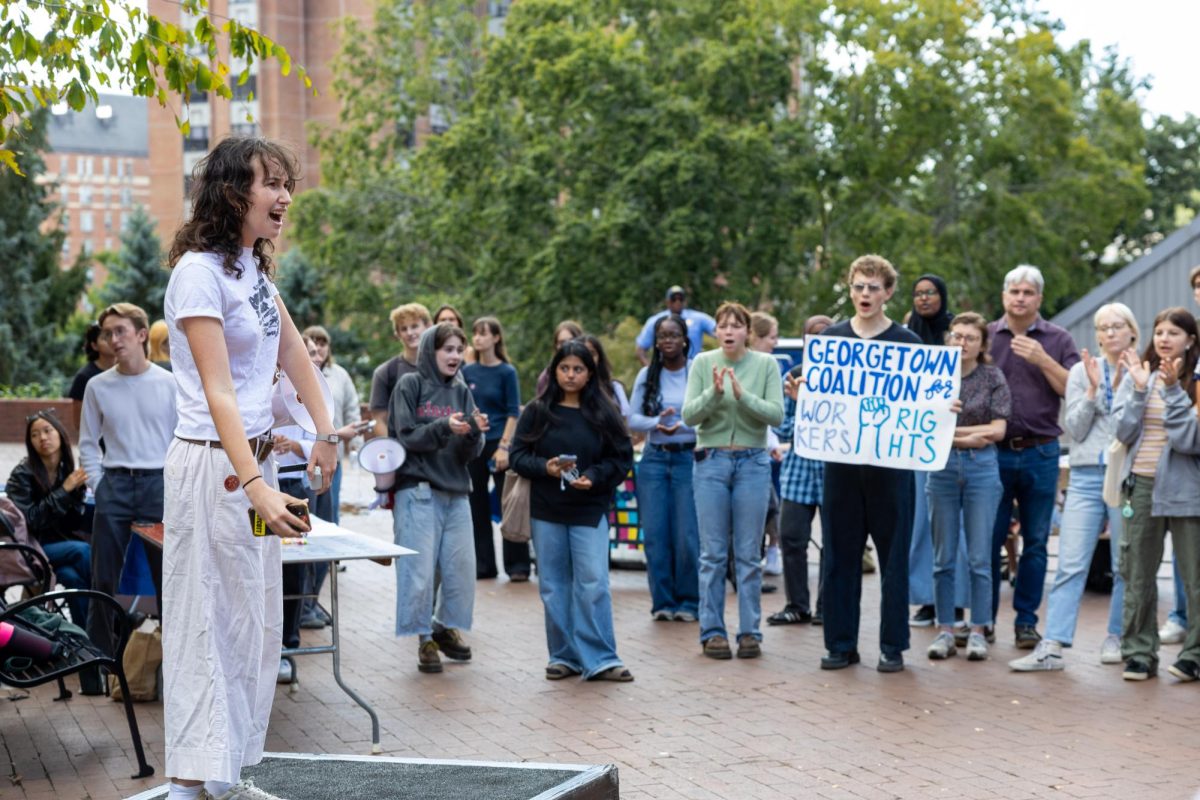After backlash against their decision to deny a pregnant student accommodations for her final exam, officials at the Georgetown University Law Center will reconsider its accommodations and Title IX policies in consultation with students, faculty and staff.
The announcement, in a Nov. 29 email to law students, follows student backlash against the university’s initial decision to deny Brittany Lovely (LAW ’26), a pregnant student due to give birth during her final exam period, accommodations to take her exams early or online. The school reversed the decision after Georgetown Law students started a petition Nov. 21 opposing it and reached an agreement with Lovely on accommodations Nov. 22.
In the email, Law Center Dean William M. Treanor and Vice Dean Lilian V. Faulhaber said they would invite community members to participate in discussions around the school’s policies on accommodations for pregnant and parenting and disabled students.
“We have heard your concerns about barriers encountered by pregnant and parenting students and students with disabilities,” Treanor and Faulhaber wrote in the email. “In the new year, we will be gathering input from students, faculty and staff to better understand the challenges experienced and develop proposals for changes to relevant policies and procedures in accordance with Title IX, the Americans with Disability Act and Section 502 of the Rehabilitation Act and will invite you to offer further comments before the policies and procedures are finalized.”

Max Siegel II (LAW ’25), the president of the Student Bar Association (SBA), the Law Center’s student government, said the announcement is a step forward in destigmatizing academic accommodations in law schools.
“I think it’s important to destigmatize accommodations, especially in the law school space,” Siegel told The Hoya. “There’s so many issues that are involved with granting accommodations, the stigma around them and the difficulty students have in attaining them.”
“I think having a more transparent process and a more community-driven process will start to further the discussion and destigmatization around accommodations moving forward,” Siegel added.
Lovely contacted Georgetown’s Title IX coordinator Sept. 11, and the two decided that she would request to take either her exams early in-person or at home during the allotted final exam period. Though her professor approved this request, the university initially denied it, claiming the accommodation would be inequitable to other students.
Natasha Panduwawala (LAW ’26), a vice president of the Student Bar Association (SBA), said she rejected the university’s claims that granting accommodations would be unfair and that she hopes the new policies prioritize equity over equality.
“I think what the process has looked like before, and the narrative that they’ve been set as, has been equality,” Panduwawala told The Hoya. “And this is not a problem of equality that we’re looking at. Specific to accommodations and giving them out, we need equitable accommodations, right? It’s an equitable thing to give students accommodations for things that they need so they can take exams in a classroom with their peers.”
Panduwawala added that student activism was necessary to compel the university to grant Lovely the accommodations.
“Student activism becomes so important in propelling petitions and explaining the story of Brittany and other students who have faced similar things, I mean getting the word out,” Panduwawala said. “Because ultimately, I think that is what changed all of this. The things that student government was doing beforehand was not enough for them to take seriously, and it was the voices of the entire student body, alums, et cetera, et cetera, is what really turned the tide here.”
Though a university spokesperson did not comment on Lovely’s specific accommodations, she confirmed to the Washington Post that the university is allowing her to defer her exams to January.
“Georgetown is committed to providing a caring, supportive environment for pregnant and parenting students,” a university spokesperson wrote to The Hoya. “We have reached a mutually agreeable solution with the student who raised concerns.”
Siegel said the university’s decision to collaborate with students has potential to create long-term change on accommodations.
“Especially with the backlash and controversy that happened two weeks ago now, there’s really a chance to do this right and to set a precedent that changes being made and implemented that directly affect a group of people on campus will be made and created for and with them,” Siegel said. “I think that this is a good opportunity to set the precedent that generally policy changes, but specifically accommodations policy changes, don’t need to be made separate from the individuals being affected,” Siegel added.


